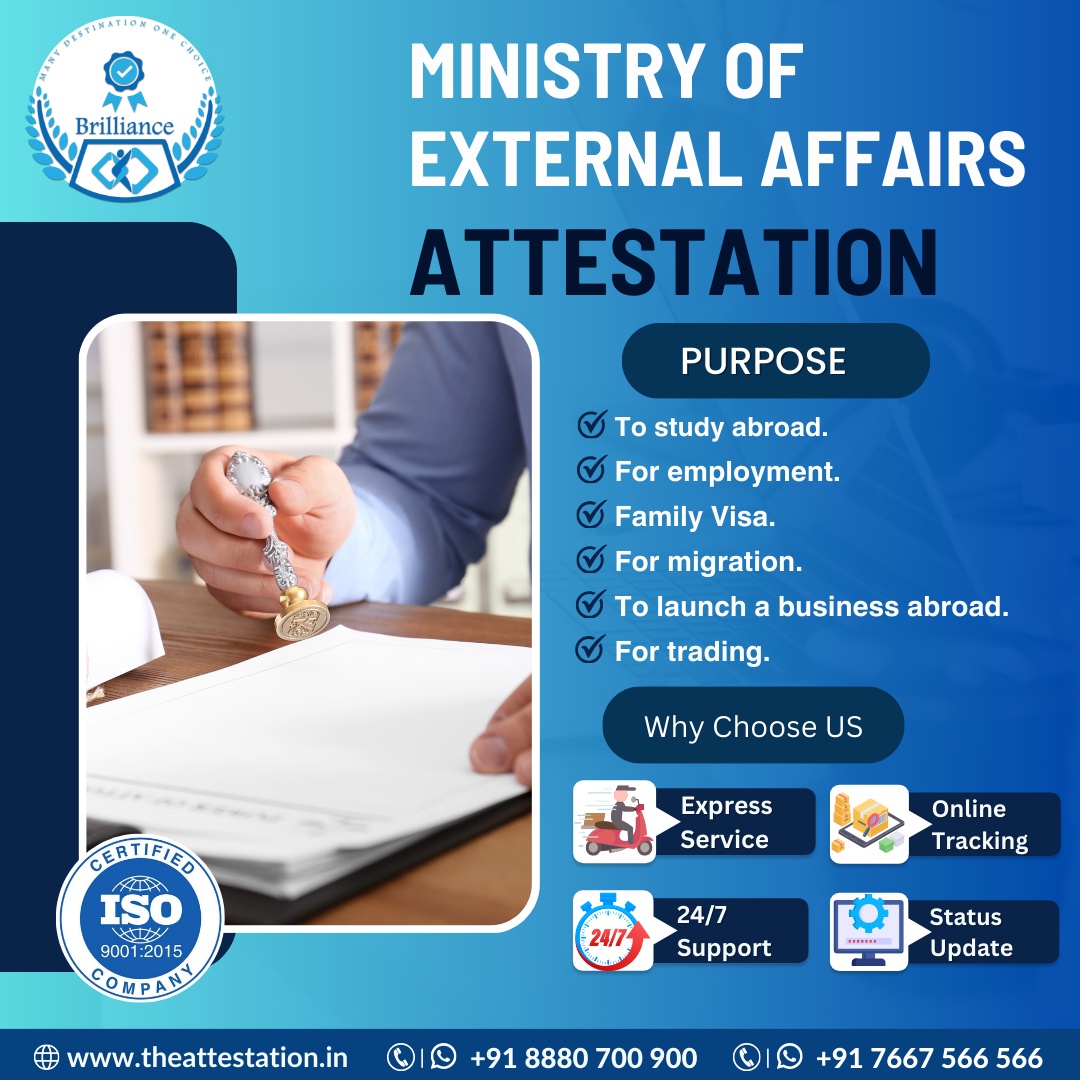The Ministry of External Affairs (MEA) is responsible for ensuring that foreign interactions run smoothly. Attesting documents is one of the main duties of the MEA. Attestation from the Ministry of External Affairs is an essential procedure that ensures the legitimacy and authenticity of significant documents. Let us examine the procedures involved in document attestation and the crucial role the Ministry of External Affairs plays in the process.
Attestation from the Ministry of external affairs is a crucial requirement for the legalization of documents, particularly when it comes to business initiatives, immigration, abroad education, and employment prospects. By attesting to the document's adherence to official procedures and guidelines, the attestation promotes trust in its authenticity and makes it easier for other countries to recognize it.

Recognizing the Requirement for Document Attestation
Attestation of documents is necessary for several reasons, such as legal, employment, immigration, and educational ones. It entails confirming the legitimacy and authenticity of documents issued by one nation for use in another. A document's attestation is primarily done to confirm that it was issued by a legitimate authority and that the information is true and accurate.
The Function of the Ministry of External Affairs is as follows:
The major government agency in India in charge of document attestation is the Ministry of External Affairs. It is in charge of verifying documents that the Indian government issues for usage abroad. For documents they testify to be acknowledged and recognized by other nations, the MEA complies with international standards and follows a clearly defined procedure.
The Procedure for Attestation
There are multiple steps in the attestation process, all of which are intended to authenticate and confirm the document's accuracy and integrity. Usually, the steps entail:
Document Verification: The MEA confirms the document's legitimacy by examining its seals, signatures, and other security elements.
Legalization: The document might need to be legalized if it is going to be used in a foreign nation that ratified the Hague Apostille Convention. The process of legalization entails signing and sealing the document to prove its legitimacy and approval for use.
MEA Attestation: The MEA verifies the document's validity and acceptability for use abroad by appending its stamp and signature.
Embassy or Consulate Attestation: If the document is going to be used in a nation that is not party to the Hague Apostille Convention, additional attestation by the relevant nation's Embassy or Consulate may be necessary. By taking this extra step, you may be confident that the document will be accepted in the country of destination and will be attested by the relevant authorities.
Document Delivery: The applicant receives the attested document back after the Attestation from the Ministry of External Affairs procedure is finished.
The Advantages of Document Attestation
When attempting to use documents in other nations, document attestation provides several advantages. Among them are:
Increased Credibility: Because attested documents have gone through a thorough verification procedure, people view them as being more dependable and trustworthy.
Efficiency: By ensuring that documents are correctly certified and prepared for use, the attestation process minimizes the need for extra processes or delays.
Greater Acceptance: Attestation from the Ministry of External Affairs reduces the likelihood of rejection or misunderstanding because they are more likely to be accepted by foreign governments, consulates, and educational institutions.
Ensuring the legitimacy and legality of significant documents issued by Indian agencies for use abroad is a crucial function of the Ministry of External Affairs. The Attestation from the Ministry of External Affairs ensures the acceptance and recognition of documents certified by them across the globe by abiding by international standards and an established procedure. Document Attestation has many advantages, such as greater acceptability, efficiency, and credibility, which makes it a necessary step for people and organizations who want to use documents in other countries.


No comments yet